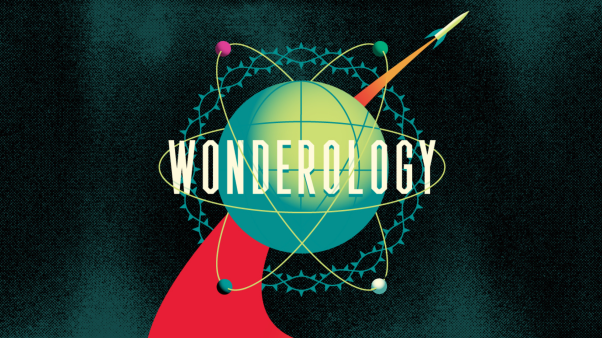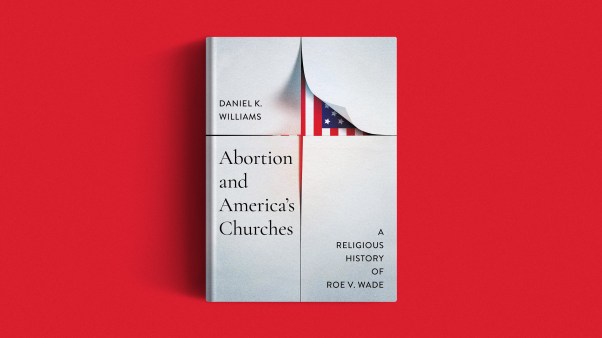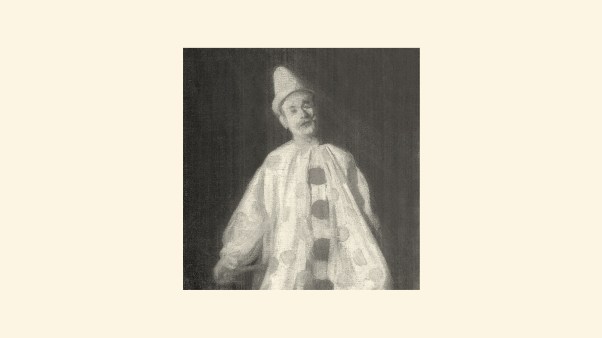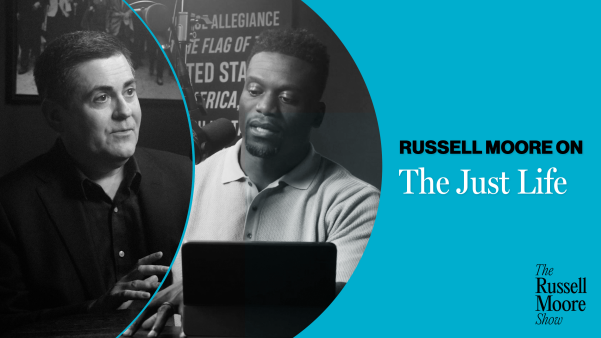Protestant Christianity no longer responds to any one final authority. The sad result of its theological defection from the biblical norm shows in the chaotic condition of Continental religious thought. For the third time in a century the supposed bulwarks of Protestant theology are falling and scholars are seeking new strongholds.
Many questions are being asked in Europe, some of them of special interest and significance for America. What future remains for the “theology of the Word of God”? What theological development and progress can be expected in the days ahead?
But, preoccupied only with each other, the theologians seem wholly unaware of their fading prestige in the world of thought.
Is this chaotic condition in contemporary theological thought a sign of God’s judgment upon the theologians? Has their persistent compromise or sacrifice of the message of the Holy Scriptures made them victims of their own confusion?
Theologians frequently remind us that divine judgment must “begin at God’s house,” a theme well-entrenched in modern dogmatics. Could it be, however, that they themselves have overlooked one of the subtler points of the biblical message—namely, that even theologians are not exempt from God’s scrutiny?
When theology was queen of the sciences, theologians recognized the indispensability of Jesus and of the apostles for understanding contemporary man (theologians included). But now that modern theologians have made themselves indispensable to the “understanding” of Jesus and the apostles, theology has become the slave of speculators. What God may be proclaiming in the history of our times is that modern theologians and their theology are quite unnecessary for the well-being and on-going of his Church.
Many theologians on university-related faculties seem oblivious of their fallen status; they seem unaware that their colleagues no longer give them the same academic esteem that scholars in other disciplines enjoy. One reason for this demotion is the apparent inability of modern theologians to communicate their convictions intelligibly. It is true that the frequently changing frontiers of dogmatics now necessitate conquering novel terrain with countless hazards of discussion. Nonetheless the physical scientists escort their colleagues over equally devious paths and do so successfully. This leads some academicians to ask whether the theologians—in the midst of their strongly asserted individualistic preferences—are perhaps using ambiguity to conceal their insecurity.
It is not only simpletons who cannot understand these theological subtleties but also some other scholars, whose own fields of specialty are highly complex; they stand amazed in the presence of the verbiage concealing Jesus the Nazarene.
But we do not believe that the theologians are deliberately clouding the atmosphere. Amid the confusion they have brought about, they are simply trying to market what is non-intelligible; that there are few takers in academic circles should surprise no one. Is it perhaps a sign of divine wrath and judgment that the theological leadership of major denominations is wielded predominantly by those who are content with changing fashions of doctrine, or who establish these changing fashions? The fundamental question for the cult of the professional theologians is simply this: What is God saying to them, to the theologians, who claim to be specialists in what he is saying to others? What is God trying to teach them in the historical fact that Protestant theology is suffering its third collapse in the twentieth century? Is he telling the theologians that they no longer know what the Word of God is?
As the religious thinkers of Europe look into the near future, what do they anticipate? While a few scholars wonder if German theology is approaching an era of divine chastisement, apparently none senses that judgment may already be in process. “It is likely,” thinks Adolf Köberle of Tübingen, “that in a short time dark events and judgments of God may come over us. The future of European theology hangs heavily on events in world history.”
The future, says Emil Brunner, is “a matter of the Holy Spirit. Bultmann does not even acknowledge the legitimacy of the term; for him the Holy Spirit belongs to ‘the myth.’ ” “Communism,” continues Brunner, “is still the greatest and most powerful ideological opponent of Christianity. Truth does not play a role in Communism, and totalitarian power can do away with theology.”
Most scholars abroad look for a generation of action and reaction in the realm of religious thought, a time of adjustment and readjustment, of combination and recombination. The course of European theology has been determined in the past so largely by the prevailing winds of philosophical speculation that Tübingen professor Otto Michel says candidly: “No man can predict the future. Spiritual developments are rooted deeper than the theological emphases of the professors. Yet they hang together with the philosophical currents and cultural and historical phenomena which often prove decisive.”
No new philosophical current as powerful as Hegel’s or Kant’s or Heidegger’s has appeared on the German horizon. The voices of Moses and Isaiah, of Jesus and Paul are permitted to say only what the critics allow. Younger theologians evidence a rationalistic drift to philosophy of religion. No clear alternative to the broken Bultmannian perspective is yet in view. While a few strong voices are rising, each distinct from the others, none speaks comprehensively and influentially enough to warrant recognition as an established alternative to Bultmann.
One thing is clear, however. No one anticipates a golden era of theological prosperity in Europe. The conservative scholars on the seminary faculties are a woeful minority, and are often isolated. Thus any decisive shift in the outlook of Continental theology is less likely to issue from an evangelical counter-thrust than from some novel philosophy. As a successor to Heidegger’s existent, such a philosophy may accommodate Christian motifs to new forms of speculation. Or in a context of some dark turn in European history it may either plunge the Continent into bleak despair and unbelief, or prompt men in their anguish to seek afresh the God of the Bible.
Predictions concerning the future of theology differ in perspective and intensity. “The dialectical theology is secure,” says Rudolf Bultmann, despite its present turbulences, “and it has a future.” Wilfried Joest of Erlangen, who agrees that the division of Bultmann’s empire need not signal an end-time for dialectical theology, notes, however, its drift toward more extreme positions: “The Bultmann school is separating into diverse shades of emphasis.… It assumes even more radical forms among some of the Mainz professors.” According to the Göttingen New Testament scholar Joachim Jeremias, “the hopeful sign and promise of a fruitful future in German theology exists through the evident turning from Bultmann’s presuppositions. We must now labor as carefully as we can to get at the words of Jesus and the content of his message.”
Two others, individualistic enough to preclude their attachment to any school of thought, should also be quoted here: Ethelbert Stauffer of Erlangen, now retired, and Helmut Thielicke of Hamburg. In these next years, says Stauffer, who is sometimes pictured by other New Testament scholars as “a twentieth century Renan, though not so sentimental,” “the Church will find it necessary to stand in the forefront of all human concerns, and we shall see the rise of a new Christian humanism.” “In 1916,” observes Stauffer, “Barth’s Römerbrief said a nein! to humanismus. The Nazi era divided Church from humanismus and Hitler fought both and conquered. What is needed now is not Khrushchev’s socialistic humanism but a new Christian humanism in which the Good Samaritan can lead us on.” Thielicke hopes that the present dead-end street in dogmatics will encourage new interest in the widely neglected realm of theological ethics: “The crisis of modern preaching lies in the fact that it speaks only to the ‘inner man,’ instead of addressing his socio-cultural situation.”
Yet in one major respect the present age of European religious thought differs from the recent past, and particularly from the generation that Barth called to a fresh hearing of the Word of God. This new generation is the one that has already heard the summons to “the God who reveals himself” and yet has turned away to Bultmannian and post-Bultmannian positions.
What will be the plight of a future generation whose spiritual confusion is compounded by the fact that the Barthian “rediscovery of special revelation” and the message that God speaks is for it an already by-passed option?
While Barth’s Wort-theology crumbled the defenses of the old liberalism, the new liberalism traced its own ancestry to the Wort-theology! What is the destiny of those who meet the plea for special revelation with deliberate detachment, who reject it as an incoherent and unconvincing option of dialectical theology?
Otto Weber of Göttingen captures the sorry mood in this observation: “Bultmann stressed that there is a Word of God even if he was unsure what it is. Bultmann’s students all speak about ‘the Word.’ But now we are already seeing a movement away from the certainty that there is such a Word.”
“Sometimes I fear the end of Protestantism in such a generation,” confesses Köberle of Tübingen. “But in a dark hour, many may long again for a firm foundation and for living bread” and by God’s grace “ears may be open again to the old unshortened Gospel.”
At present the prospect of a rediscovery of “the old unshortened Gospel,” by the theologians at least, does not seem very bright, for the chaos of contemporary theology rests in the frontier realm of the problem of religious knowledge. It is a strange fact of modern European theology that while most of its theologians stress special divine disclosure, they differ woefully as to its nature, content, and significance.
“The basic problem remains Christology,” insists Wilfried Joest of Erlangen. “The real issue is the meaning of the person of Christ for the Word of God, for truth, and for justification. Is he only the prophetic mouth of God, or is he present in the Word?”
But what is this Word? Notes Peter Brunner of Heidelberg: “If the Church does not experience a new awakening—not necessarily in the eighteenth or nineteenth century sense of pietistic renewal—then we shall not have a real renewal of theology. The prophet Amos speaks of a time when people go through the land and ask for the Word of God and there will be no Word of God. This bad situation must be turned by God’s grace into a good situation, or there is no hopeful future for German theology.”










